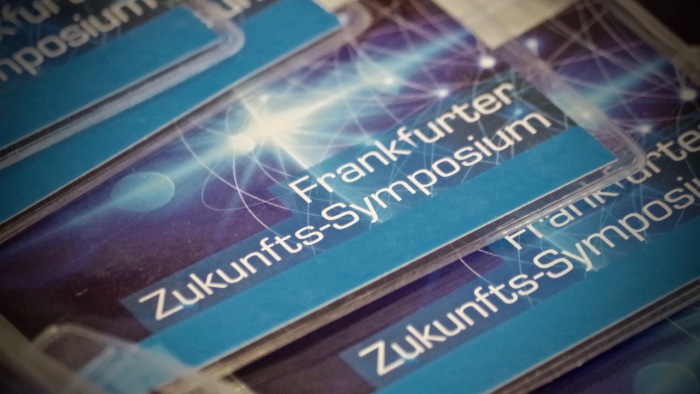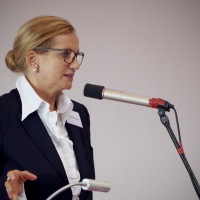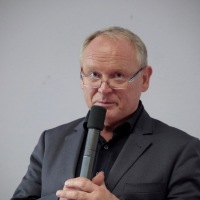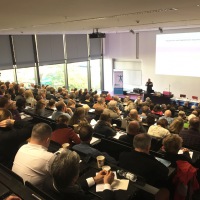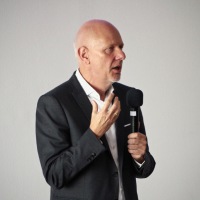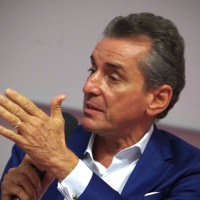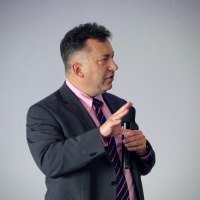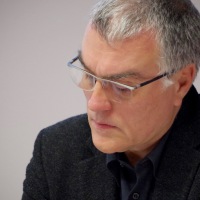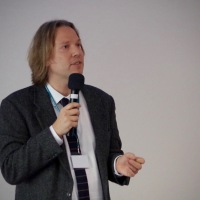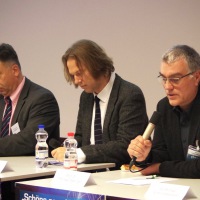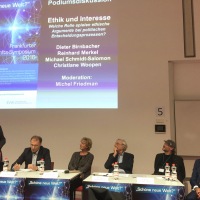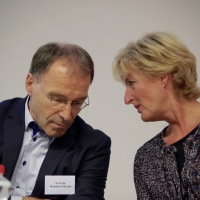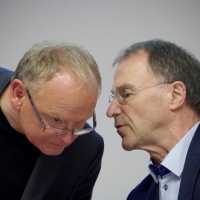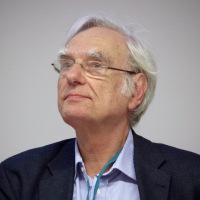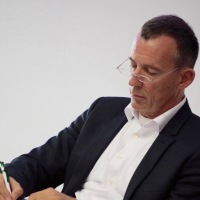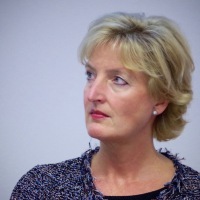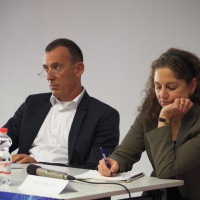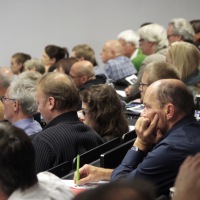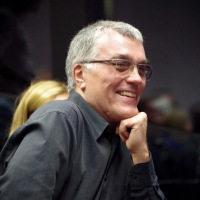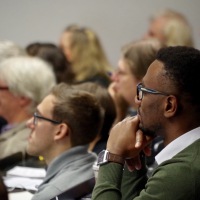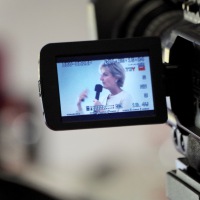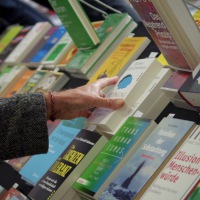In Search of Future Proof Ethics
The "Frankfurt Future Symposium" explored the opportunities and risks of new technologies
"Our ethical-political systems are far behind technological development," explained philosopher Michael Schmidt-Salomon in his introduction to the "Frankfurter Zukunfts-Symposium" ("Frankfurt Future Symposium"), which was held last weekend by the Ethikverband der Deutschen Wirtschaft ("Ethical Association of German Economy") and the Giordano Bruno Stiftung. For this reason, the two organizations decided to create a network that aims to develop "rational standards for assessing the opportunities and risks of new technologies."
"The Frankfurt Future Symposium was only the first step towards establishing such a network," said the president of the Ethics Association of German Economy, philosopher and HR consultant Irina Kummert, who presented the two-day conference at the Goethe University in Frankfurt. In her opening speech to the approximately 300 congress participants, Kummert emphasized how pleased she was that "so many renowned speakers accepted our invitation." The first two panels of the conference were already prominently staffed: Philosopher and economic ethicist Klaus-Jürgen Grün, trend researcher and futurologist Matthias Horx, tv host and lawyer Michel Friedman, as well as the investigative journalist and former head of the Tagesthemen editorial office Jay Tuck discussed the "open future and its enemies" hosted by Gert Scobel. In the second panel, criminal lawyer and legal philosopher Eric Hilgendorf, neuroethicist and cognitive scientist Thomas Metzinger, and transhumanist philosopher Stefan Lorenz Sorgner dealt with the "dangers and opportunities of digitization", demonstrating what "ethics for robots" could look like, how "virtual realities" change our perception of the self and the world, and where we can find differences between classical-humanistic and trans- and posthumanistic concepts.
The panel discussion on Saturday evening was also made up of renowned experts. In addition to Michel Friedman and Michael Schmidt-Salomon, medical ethicist and former chairwoman of the German Ethics Council Christiane Woopen, legal philosopher and criminal lawyer Reinhard Merkel (also a member of the German Ethics Council), as well as philosopher and chairman of the Central Ethics Commission at the German Medical Association Dieter Birnbacher discussed the question which role ethical arguments should play in political decision-making processes and which role they should play under optimal conditions. During the discussion hosted by Klaus-Jürgen Grün on the subject of "Ethics and Interest", it quickly became clear that ethics and interest do not necessarily have to contradict each other. After all, ethics is not least about finding fair solutions to conflicts of interest. In order to make this possible, however, a disproportionate enforcement of "particular interests" must be prevented. The latter, according to the general consensus of the discussion, can unfortunately be observed in political business time and again. During the debate, this fact was particularly illustrated by the example of the "Euthanasia Prevention Act" § 217 of the German Criminal Code (StGB) passed last year, which was rejected by all podium participants, albeit in varying degrees of severity.
On Sunday morning, Christiane Woopen, philosopher and bioethicist Franz Josef Wetz, as well as the lawyer and Hessian state parent representative Ingrid Häußler discussed the "Consequences of New Biotechnology". Key topics were "neuro-enhancement" and "Big Data and health care". Similar to the other panels, this highly interesting discussion also showed that it is possible - even with different ideological approaches - to identify criteria on the basis of which desirable and undesirable developments can be rationally distinguished.
In contrast, the task of integrating such standards into everyday political and economic life seems far more problematic. "The next Future Symposium, which is planned for 2018, will address this question with special attention," the organizers of the congress Irina Kummert, Klaus-Jürgen Grün, and Michael Schmidt-Salomon concluded. By this time, the Ethikverband der Deutschen Wirtschaft and the Giordano Bruno Stiftung intend to have established a joint "Expert Network for Future Ethics and Shaping the Future".
After the successful cooperation at the Frankfurt Future Symposium, the cooperation between the two organizations shall "definitely be expanded", it was said. After all, it had been shown "that the profiles of the Ethikverband and the Giordano Bruno Stiftung wonderfully complement each other". For instance, both assumed the necessity of a "non-moralising, critical-rational, and evidence-based argumentation" in order to be able to adequately assess future developments. The aim is to enable a "fair competition of ideas" and to convince as many people as possible "that the more we are committed to shaping the future in a sensible way, the less we all have to fear the future".

